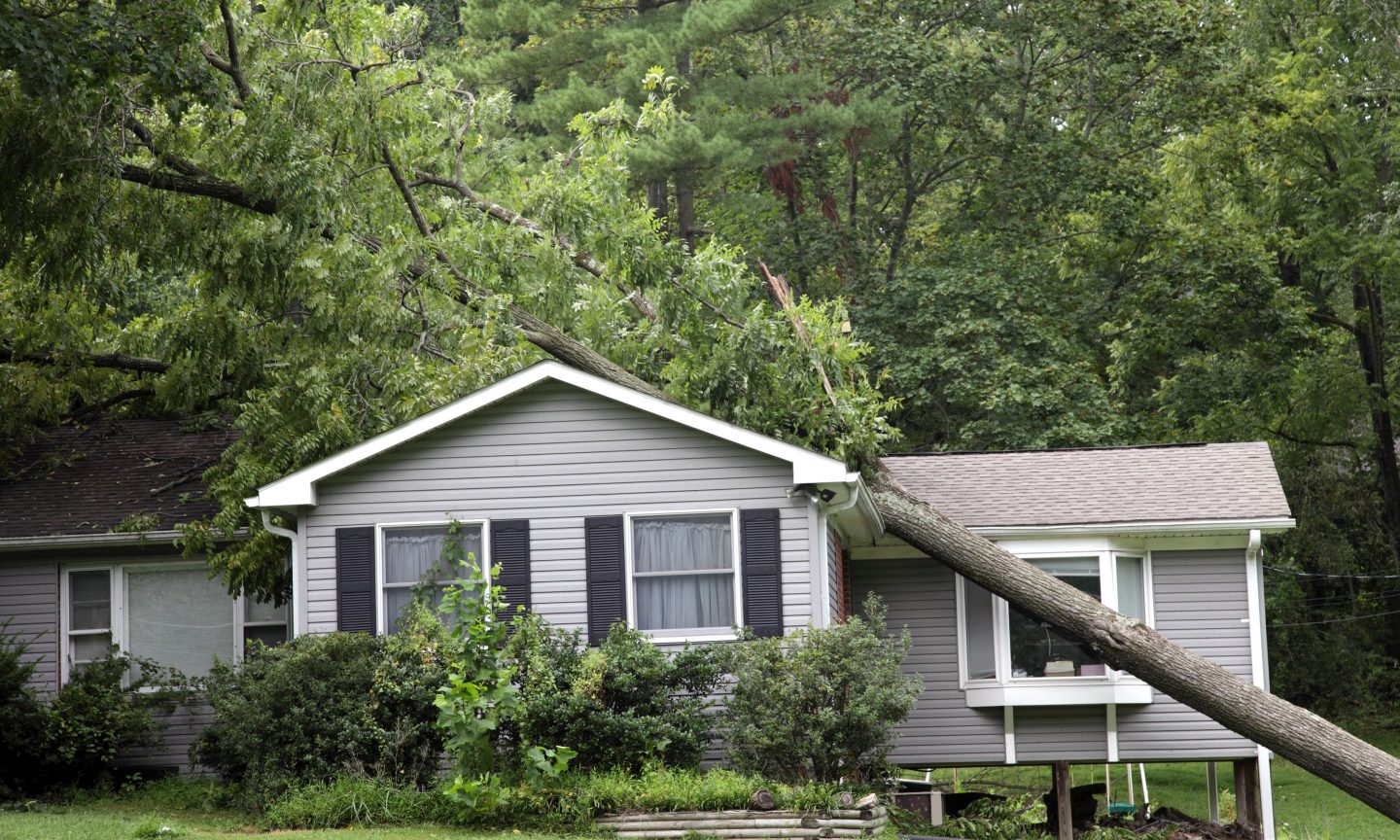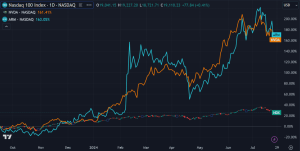Key takeaways
-
Personal liability insurance covers you if you’re responsible for someone else’s injury or property damage.
-
Personal liability coverage is a standard part of a homeowners insurance policy.
-
It can cover scenarios such as a dog bite or someone getting injured on your property.
You probably know your homeowners insurance policy will pay out if your house is damaged or destroyed — but did you know that it can also help defend you from lawsuits? That’s because most homeowners policies offer personal liability insurance in addition to property coverage. Here’s how it works.
What is personal liability insurance?
Personal liability insurance covers you if you’re sued for injuring someone else or damaging their property. It can pay your legal fees and other expenses for which you’re deemed responsible, up to your policy limit.
Here’s a scenario in which you might need this coverage:
Your deck gets slippery during a summer pool party, and a guest trips and falls. She breaks her elbow and sues you for medical expenses, plus pain and suffering. Your personal liability insurance would cover your legal defense and pay up to your policy limit if you’re found liable for your guest’s injury.
Personal liability coverage is a standard part of a homeowners insurance policy, just like coverage for the structure of your house. Personal liability coverage is also included in other types of home insurance policies, including renters and condo insurance. (Learn more about renters liability insurance.)
The personal liability insurance on your homeowners policy generally covers everyone in your household, including children and pets.
Is personal liability insurance required for homeowners?
There’s typically no law saying you need to buy personal liability insurance in order to own a house. However, if you have a mortgage, you’ll almost certainly end up with personal liability coverage.
Most mortgage lenders require hazard insurance, which is the part of a homeowners policy that covers the structure of your home. When you buy homeowners insurance to get hazard coverage, you’ll likely get personal liability coverage, too.
If your home is paid off or you’re buying one without a mortgage, you could choose not to get homeowners insurance. But going without financial protection from lawsuits or the destruction of your home is a risk you’d want to weigh carefully.
What does personal liability insurance cover?
Personal liability insurance covers harm you do to other people or their belongings, not your own injuries or damage to your stuff. Below are a few scenarios that your personal liability insurance would probably cover.
Injuries you cause
You round a corner while jogging and accidentally crash into a pedestrian, knocking him off the sidewalk. He breaks his ankle, keeping him out of work for a couple of months. He sues you for medical expenses and lost wages.
Injuries on your property
A delivery person slips and falls on your icy front steps. She files a lawsuit, accusing you of negligence because you failed to put down salt that morning.
Injuries caused by your pet or child
Your dog Fluffy gets a little over-excited at the park and bites a child’s hand, leaving a wound that needs stitches. The child’s parents sue you to recover their medical costs. (Note: Some insurers won’t cover certain dog breeds or animals with a history of aggression. Check with your insurance company to make sure your dog is covered.)
Damage caused by someone in your household
Your son hits a long fly ball through a window at his best friend’s house, shattering not only the glass but also an expensive vase sitting inside. Your liability insurance could pay for the damage if you’re found liable.
Damage on your property that affects other people’s homes
A tree in your yard falls onto your next-door neighbor’s roof. Because the tree was dying and you hadn’t gotten around to having it professionally removed, you’re deemed liable for the damage.
What does personal liability insurance not cover?
Below are some scenarios that generally aren’t covered by personal liability insurance, along with advice on which other insurance might offer coverage. For a full list of exclusions, check your homeowners policy.
Car accidents
You run a red light and crash into an SUV. All three passengers in the other vehicle are injured, and the SUV is totaled. Medical and repair costs for the people in the other vehicle would be handled by your liability car insurance, not by your homeowners personal liability coverage.
Business liability
You run a business out of your home and are sued by a client over what she considered to be bad advice. Although the incident may have happened in your home, personal liability insurance usually won’t cover lawsuits connected to business pursuits. Instead, you’ll need business insurance.
Injuries to people within your household
Your daughter, who lives with you, trips and falls down the basement stairs. If she were a guest in your home, personal liability insurance might cover her injuries — but because she’s a member of the household, she’ll have to rely on her own health insurance for treatment.
Intentional harm
Your teenage son and his friends spray-paint rude messages all over the outside of a local store. Because they caused this damage on purpose, it’s considered a crime, not an accident or act of negligence. Your liability insurance is unlikely to cover your son’s defense.
How much personal liability coverage do you need?
Homeowners insurance policies usually offer liability limits between $100,000 and $500,000. In case that’s not enough, companies that target wealthier consumers, like Chubb, sell amounts well into the millions.
The amount of personal liability insurance you choose depends on the value of your assets, your chance of being sued and your tolerance for risk.
Consider buying at least enough personal liability insurance to cover your net worth. You might want to choose a higher amount if any of the following lawsuit risk factors apply to you:
-
You have hobbies that could potentially injure others, such as skiing, hunting or surfing.
-
You own a dog. (Make sure your insurer will cover the breed.)
-
You’re a public figure or a wealthy member of the community.
-
You frequently host parties in your home.
If your insurance company doesn’t offer high enough liability limits on your homeowners policy, you might want to add umbrella insurance. This type of policy gives you extra liability coverage on top of your existing homeowners and auto policies, with limits typically starting at $1 million.
How much does personal liability insurance cost?
You’ll likely purchase personal liability insurance as part of a homeowners policy, which costs $1,765 per year on average, according to a NerdWallet rate analysis. That rate reflects a $300,000 liability limit, but it’s relatively inexpensive to add more coverage. Increasing the liability limit to $500,000 adds $8 to your average annual cost.
Is there a deductible for personal liability insurance?
A deductible is the amount of money you’re responsible for if you make a homeowners property damage claim. However, you typically don’t have to pay a deductible for liability claims.
What is Coverage E personal liability?
You may hear personal liability insurance referred to as “Coverage E,” which reflects the way it’s listed in many homeowners insurance policies. (Similarly, dwelling insurance is often listed as Coverage A, other structures insurance as Coverage B and so on.)
What’s the difference between personal liability and personal injury coverage?
Personal liability insurance covers you if you cause bodily injury to another person or damage their property. Despite its name, personal injury coverage doesn’t cover bodily injury but rather things like slander, libel, wrongful eviction, false arrest and invasion of privacy. Although personal liability coverage comes standard with most homeowners policies, you may not have personal injury coverage unless you add it as an endorsement.
This post was originally published on Nerd Wallet







